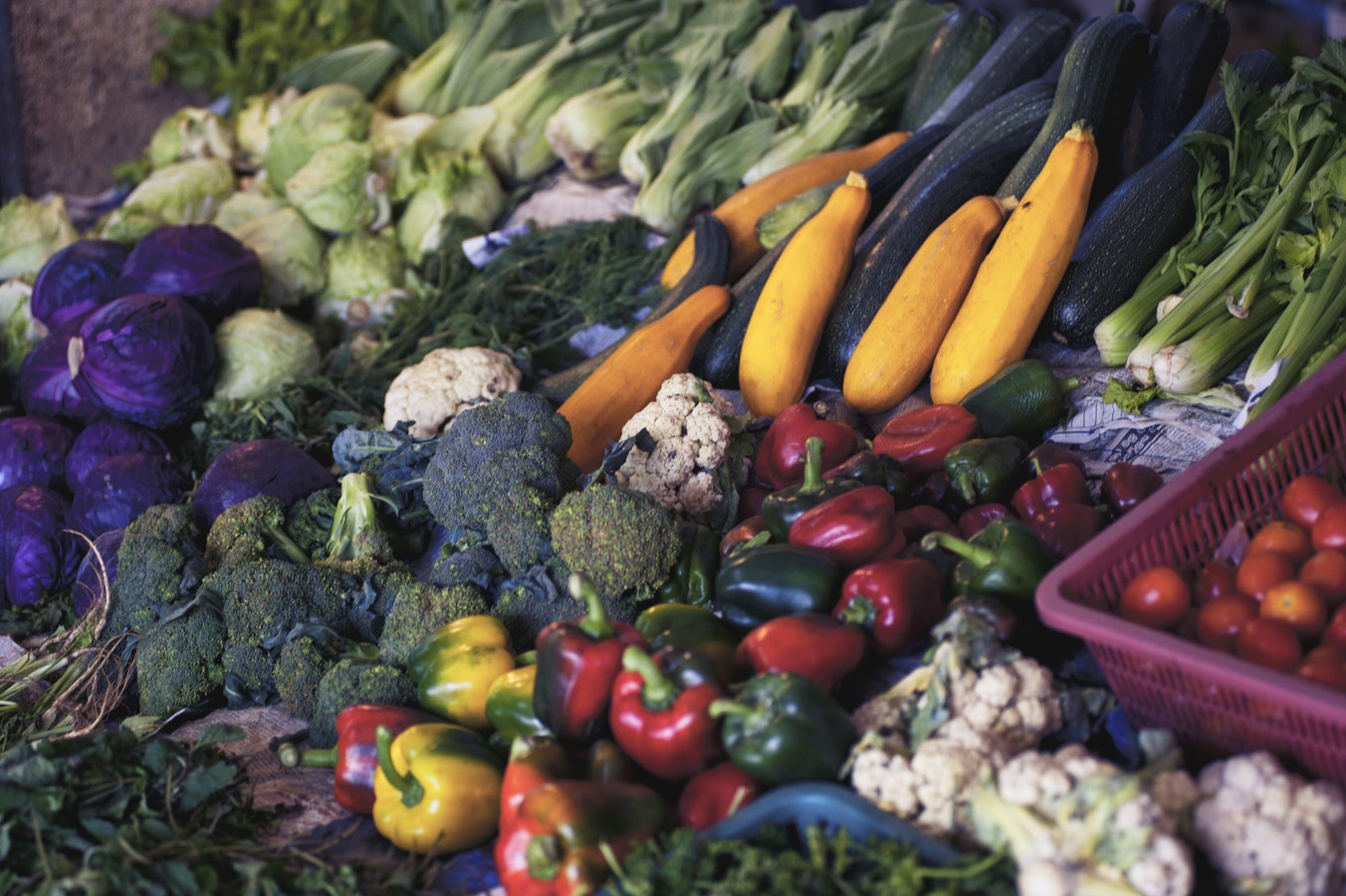Fueling Your Karate
To achieve your training goals, it is essential that you’re fueling every karate session with the best range of fruit, vegetables, and carbs. By paying attention to your diet and increasing the absorption of vitamins and minerals you will be able to train longer and harder, reduce soreness after exercise and decrease the damage of tissue and joints.
Carbohydrates
Karate training can be an intensive and strenuous exercise. To be provided with the energy needed during prolonged exercise it is recommended that 50-60% of the daily calorie intake should come from complex carbohydrates. A high carbohydrate diet will increase performance, stamina and good health (it’s also recommended to have 25% good quality protein and 15-30% good fats)
The body stores carbohydrates as glycogen in the muscles and liver, providing energy within the body. Glycogen is broken down into glucose and helps release energy stored in the body’s fat. When the body begins to sweat, these stores are depleted. For optimal performance, the lost fluid should be replaced. High glycogen levels help maintain a higher training intensity for longer which is an important factor for any karate class.
Dietary suggestions: cereals, whole meal bread, pulses, oats, brown rice, and pasta.
B Vitamins
To maximize the release of energy from carbohydrates, B vitamins must be present in the diet. They help metabolize protein, carbohydrates and fat and maintain a healthy immune system. B vitamins work together in the body and are present in many of the same foods.
Dietary suggestions: whole grain products, nuts, seeds, eggs, liver, pulses, oily fish. Spirulina, wheatgrass and barley grass are an excellent source of B vitamins and many other vitamins and minerals.
WHAT NUTRIENTS ARE LOST DURING TRAINING?
Many minerals are lost during exercise through sweat. A balance of minerals is imperative for muscle function and healthy bones.
Sodium and Potassium
A correct balance of these two minerals is needed to regulate the flow of water in the cells. They also prevent muscle spasm by enhancing muscle and nerve function.
Dietary suggestions: Sodium is found in salt but in most diets, there is not enough potassium. Potassium can be found in fruits, vegetables, and cereals.
Calcium, Magnesium, and Phosphorus
They are essential for strong bones and helps muscles contract and relax efficiently (an important function to achieve good karate). As magnesium is lost through sweat, it is important to replenish sources to prevent muscle spasms. Both calcium and phosphorus regulate muscle contraction and relaxation and helps a number of B vitamins to function efficiently. These minerals compete for absorption in the body so it is recommended that when supplementing these minerals, magnesium and calcium are balanced in a 1: 2 ratio. Phosphorus is the second most abundant mineral in the body as it is more easily absorbed. When all these minerals are out of balance, the body will sacrifice calcium stores.
Dietary suggestions
Magnesium: Brazil nuts, walnuts, chickpeas, spinach, haricot beans.
Calcium: milk and milk products, soy products, beans, nuts, spinach, sardines
Phosphorus: meats, poultry, eggs and seeds.
Iron
Replaces red blood cells that are damaged during exercise. Iron from red meats is more easily absorbed than vegetarian options. To aid absorption, eat foods rich in vitamin C when eating these foods.
Dietary suggestions: Red meat (not daily), whole grains, green leafy vegetables, pulses, nuts and dried fruit.
Chromium
This is important in carbohydrate metabolism and helps regulate sugar levels in the blood lost during exercise. Chromium can also help reduce sugar cravings.
Dietary suggestions: Egg yolks, beef, brewers yeast, whole grains and many vegetables.
Silicon
Is involved in the formation of bones and connective tissues and can be found in virtually every tissue in the body.
Dietary suggestions: Whole grains, beetroot, alfalfa, and onions.
Vitamin C
Keeps connective tissues, teeth, bones and blood vessels healthy and keeps the immune system functioning and helps iron absorption.
Dietary suggestions: Raw red capsicum, green leafy vegetables, kiwi fruit, strawberries, tomatoes and citrus fruits.
Ideally, the best sources of all these requirements are from fresh foods. While it preferable to not rely on supplements for dietary requirements, a multi-vitamin and when necessary calcium and magnesium, will benefit your fitness programme. Always remember, food is fuel!
Body Boosters
- Take a high strength multi-vitamin including minerals and vitamins B, C and E. Be sure to increase mineral intake when exercising excessively/continually.
- Add spirulina into the diet as it’s high in protein and helps stabilize blood sugar levels and increase the body’s energy.
- 2 tablespoons of flaxseed oil per day will boost metabolism, increase energy in body and aid weight loss.
- Eat raw vegetables where possible as many B vitamins are lost during the cooking process.
- Drink freshly squeezed vegetable/fruit juices.
- Add nuts and seeds to salads, muesli, stir-fries, and yogurt.
- Eat organic produce to maximize nutrient intake from the soil.
- Add wheat germ to protein shakes and smoothies.
- Eat complex carbohydrates such as brown rice and pasta and wholegrain bread and cereals. Avoid white products.
- Limit alcohol intake as this depletes the body of vitamins, minerals, and energy.
- Avoid coffee with meals as it inhibits the absorption of carbohydrates and protein.
If you train to lose weight, try this…..
If you are looking to include some home training and equally, would like to lose a few pounds then morning training could be the best solution.
According to Anita Bean, author of ‘Fitness on a Plate’, “The best time to exercise with the purpose of losing weight is first thing in the morning. And before eating, as this is when blood-insulin levels are at their lowest and when glucagon (a hormone that boosts blood-sugar concentration) are at their highest.
Doing this will result in more fat leaving your fat cells where they travel to your muscles to be burnt off.
Exercising before breakfast will not burn more kilojoules, but more of the kilojoules that you do burn will come from fat.
The following is a simple pre-breakfast workout:
- Warm up properly with a 5-10 minute walk, light jog or skip.
- Complete all your strikes and blocks slowly (6 reps) to further increase the range of motion in your muscles and joints. Concentrate on technique.
- Complete all strikes and blocks at full speed (8-10 reps).
- Complete ten leg raises on each leg (to the front and side).
- Complete each kick slowly (6 reps).
- Complete each kick a full speed (8-10 reps).
- Choose two kata you wish to improve (if you do not know 2 kata, choose a simple combination you can perform or ask your instructor for a recommendation).
- Complete each kata three times (once slow, once medium, and once fast).
In total this should take just over 30-40 minutes. If you train more than one morning per week, adjust your training regime to focus on different aspects of your karate.




